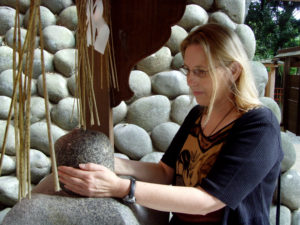However you lean politically, the media is clearly bringing to the surface an issue that affects a large population in our country – Sex Addiction!
CNN, Fox News, MSNBC and others are all playing over and over the Access Hollywood video by Billy Bush where Trump showed his cards in how he thinks about and treats women.
With the accessibility of stimulation through the Internet and mobile phones, sexual addiction has come to the forefront. Celebrities behaviors are also being recorded and shared in public. In my private practice as a mental health and addictions counselor, more and more clients are showing up who need help from this addiction. Whether it be prostitution, pornography or chronic masturbation, it can wreak havoc in their lives and the lives of those they love. In response to this, the treatment community has begun to use sexual addiction assessments along with alcohol and drug assessments.
Working as a chemical dependency counselor at a Federal prison camp in the mid-1990s, during the “war on drugs,” we began assessing for childhood sexual abuse and past sexual abuse. Nearly all of the female clients had been sexually abused. Some of the men said yes, but I suspect even with the promise of confidentially, they did not admit to this. Many who have been abused don’t remember, but issues show up later in their lives in relationship.
Most of my clients who were diagnosed as sex addicts had been women and men who had a history of past sexual abuse and at some level attempted to find balance and healing, but instead found themselves in relationships where they became sexually addicted and often exploited. Some went on to be sex offenders. One example is a past client I counseled. He had been abused by his older brother and then went on to sexually abuse his nephew.
A leader in the field of Sexual Addition treatment is Douglas Weiss, PhD. This article summarizes the 6 Types of Sexual Addicts, a model he developed, which became the standard used to certify Sexual Recovery Therapists by the American Association for Sex Addiction Therapy.
[clickToTweet tweet=”‘In a normal situation, a person is having sex inside a relationship context.'” quote=”Weiss explains, “in a normal situation, a person is having sex inside a relationship context. He/she is gluing to the person, the eyes, and the soul of the person he/she is being sexual with.” This is different than having the object of sexual fulfillment being images that do not respond. Addiction creates lack of control, shame, and self-loathing and destroys relationships. “]
Six Types of Sexual Addicts
1. Biological Sexual Addict
Weiss states this is the most common sex addict. Basically the behavior is “ring the bell, feed the dog, ring the bell, feed the dog” like Pavlov’s conditioning. What happens is during orgasm; the endorphins that are released create an attachment to what is happening at the time. So whether this is a real or imaged person, the chemical release in the brain creates a bond. These endorphins, “almost four times as strong as morphine,” are the highest chemical reward the brain can come by, legally. Therefore, “your brain literally glues to, hungers for, craves, and wants to repeat that activity again.”
Weiss states that the Biological Sex Addict probably represents less than 15% of all sexual addicts, and is the baseline of all the sexual addictions. Most also have components of the other five types.
In my own counseling practice, many of my female clients who have a history of sexual abuse fall for his type of addict. They become the sexual object for them.
2. Psychological Sexual Addict
This person is often the one who has experienced emotional or physical abuse in his life. Due to the lack of love, touch, or security, as a child he sets up a fantasy life. This sense of neglect can carry on into adulthood and when his needs are not met at home, he creates a fantasy world where he feels adored, worshiped, and desired. This is the man who fantasizes he is the best, the biggest, the greatest, etc. If he has been dominated in his life he may fantasize as being the one who is dominating.
In his psychological fantasy, he feels sexually powerful, loved and wanted. In his imagination, he doesn’t have to deal with real women who may say no, ask him for commitment, ask for help with the housework or ask for emotional intimacy. Once this fantasy is paired with the powerful chemical endorphins, he is hooked.
3. Spiritual Based Sexual Addict
Similar to the psychological sexual addict, this addict is looking for a connection. There is a strong desire for a spiritual connection. They look to find it within their sexual addiction. In this case, once they have a spiritual experience through a religious encounter, an experience with Jesus or another guide or Guru, the sexual addiction stops. “Their sexual addiction just plain stops, because that’s where the origin of the ache or the need was for the individual.” These people rarely get help within the clinical community.
4. Trauma Based Sexual Addict
The trauma based sexual addict is the client I have most experience with. In this case, he or she has experienced sexual trauma, most likely as a child or adolescent. These clients go on to mirror their trauma in their relationships. For example a young girl who was sexually abused by an older uncle may end up in relationship after relationship with older men. She may despise herself for this, but continue the behavior and recreate the shame. A woman who has been physically abused in conjunction with a sexual trauma may act out being abused in the sexual act in order to be satisfied and make attempt after attempt to find the right partner, shaming herself all the way. She becomes a sexual addict that is also the sexual object of another addict.
5. Intimacy Anorexic
Although a separate issue from sexual addiction, Weiss states intimacy anorexia affects around 29% of sex addicts. Generally, the anorexic behavior is related to “sex addiction, sexual trauma, neglect in the family and cross gender attachment disorder.” There also may be related to other co-occurring disorders. Weiss describes intimacy anorexia as when a “spouse intentionally withholds emotional, spiritual and sexual intimacy.” They may control through silence, anger, or withholding money. They blame their spouse, withhold love, tend to be critical, and are unwilling to talk about their feelings. This is a difficult situation for the addict because as they are working on their own recovery, whether it be abstaining from prostitutes, masturbation, or pornography, they also need to learn to move toward their spouse or partner and re-create a healthy relationship. They have to learn to feel and communicate their feelings.
6. Mood Disorder
Sexual addicts who also have a mood disorder are another type of sex addict. Weiss shared about clients who were bipolar or had cyclothymic disorder and were medicating the imbalance neurologically through the ejaculation response. Until the medication was adjusted properly, they continued to relapse.
When you hear the term sexual addict, it may conjure up an image of someone being sexual, playful and having fun. The truth is the very opposite. Although the sexual thoughts and behavior may start that way, as in any addiction, the person loses control and their life spirals downward. Sexual addicts generally have low self-esteem and believe no one will love them as they are. They lack emotional intimacy and are continually pre-occupied with sex and sexual fantasies. They feel out of control and experience mood swings. They are filled with feelings of guilt and shame.
You may wonder, how sexual addiction is different from normal sexual behavior.
Weiss explains, “in a normal situation, a person is having sex inside a relationship context. He/she is gluing to the person, the eyes, and the soul of the person he/she is being sexual with.” This is different than having the object of sexual fulfillment being images that do not respond. Addiction creates lack of control, shame, and self-loathing and destroys relationships.
As with all addictions, recovery is a one-day at a time process. Interventions and treatment planning is different for each specific person. Most often when one is treated for sexual addition, the chances of recovery are better when their spouse or partner is involved.
In addition to treatment centers like the Heart to Heart Counseling Center in Colorado Springs, Colorado, where Dr. Weiss is the Executive Director, there are also 12 Step Programs such as Sex Addicts Anonymous. https://saa-recovery.org/ There are several other similar programs that provide help.
The Six Types of Sexual Addicts information came from a written interview of Dr. Weiss by Barbara Alexander and my email communication with him.
Douglas Weiss, Ph.D., is the Executive Director of Heart to Heart Counseling Center and the author of The Final Freedom: Pioneering Sexual Addiction Recovery (Discovery Press, 2008).
This article was published in part earlier in Live Encounters Magazine. http://liveencounters.net/january-2014/06-june-2014/dr-candess-m-campbell-sexual-addiction/


